Coronavirus: Shielding in Wales to end on 16 August
- Published
Dr Frank Atherton said people shielding "can gradually resume day-to-day life"
Those most at risk from coronavirus can stop shielding after 16 August, Wales' chief medical officer has said.
Around 130,000 people in Wales with underlying health conditions have been advised to stay indoors since the start of the pandemic to protect themselves.
At the coronavirus briefing on Thursday, Dr Frank Atherton said such people in at-risk groups would be able to go to work, school or the shops.
He said they "can gradually resume day-to-day life".
Dr Atherton added the measures would be kept under review in case of a rise in transmission levels.
He said it was still very important that people in the shielding group continued to pay strict attention to physical distancing and good hand hygiene.
Some of the support which has been made available for those shielding will end, such as the weekly food box scheme - a direct food delivery service which is currently provided for people shielding.
But supermarkets will continue to offer priority delivery slots for those who are deemed particularly vulnerable to coronavirus.
A prescription delivery service will remain in place until 30 September, said Dr Atherton, who added he will be writing to everyone in the shielding group.
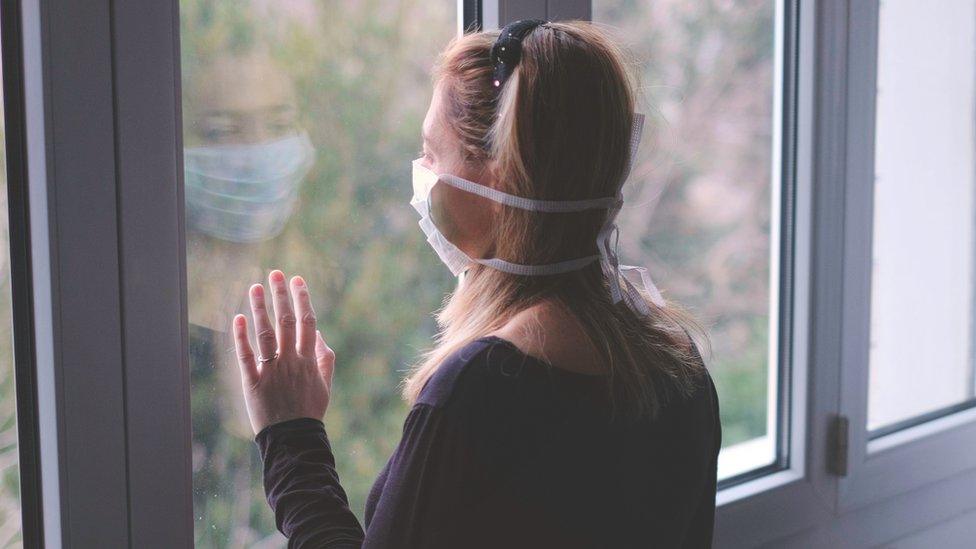
People who are shielding will be sent a letter updating them on the latest situation
Dr Atherton said the NHS in Wales will keep an up to date list of those who have been shielding, because "we just don't know what's round the corner".
He added the Welsh Government may have to reinstate "some form" of shielding in the future, if the virus increases in Wales.
"It may be - we hope not - but it may be we may have to reinstitute some form of shielding in the future," he said.
"If we do that, it may not be exactly the same group, there's a piece of work going on at a UK level to do a better risk assessment so that we have a clearer idea of who really will benefit."
Shadow health minister Angela Burns MS said it was "welcome news" for the thousands of people who have been "cut off from family, friends, work, school and any sense of a normal life."
But she added lifting restrictions on a Sunday seemed strange.
"For those who have been effectively isolated for months, were the pause from the Friday, or even the Saturday, that extra day could mean so much to people," she said.
Are people ready to go out again?
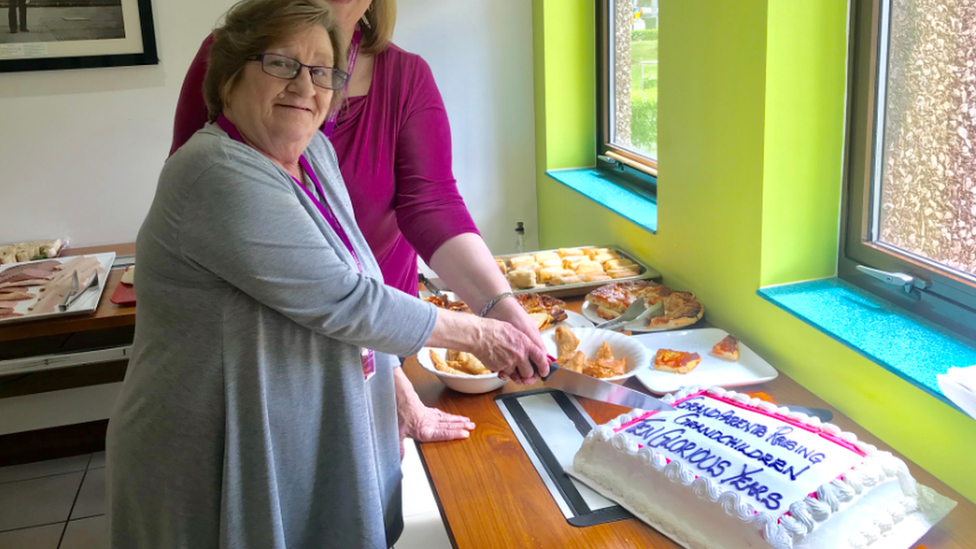
Lee Dirkzwager says she did not enjoy it when she had to go to the bank
One woman who has been shielding since March said she feels it is still too soon.
Lee Dirkzwager, 72, from Cardiff, has a number of underlying conditions, including chronic obstructive pulmonary disease.
She said she briefly went out to go to the bank, but "didn't enjoy it".
"I'm trying to stay away from people and people are walking past you with no masks - it's not nice," she said.
"I think it's going to be a lot longer before I want to go out."
Who has been shielding?
Those most at risk, external of coronavirus, including:
Solid organ transplant recipients
Some people with cancer who are undergoing treatments such as chemotherapy and radiotherapy
People on immunosuppression drugs
Women who are pregnant and have heart disease
People with severe respiratory conditions - cystic fibrosis, severe asthma and COPD
Some people with rare diseases such as severe combined immunodeficiency
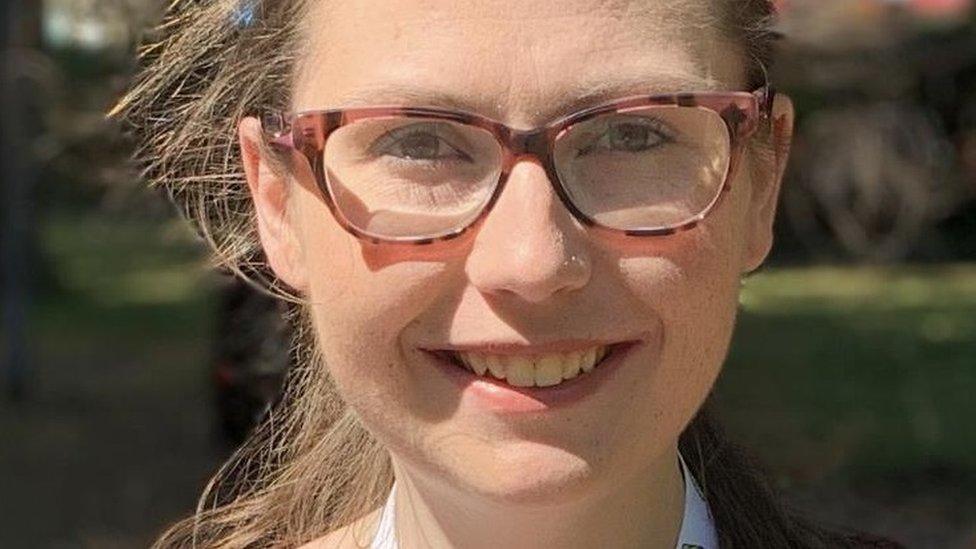
Helen Iliff created badges to remind people about social distancing.
'Confidence to go out'
As those shielding prepare to slowly return to normal life, a trainee anaesthetist has designed a pin badge encouraging others to keep their distance.
Helen Iliff, who works at Prince Charles Hospital, Merthyr Tydfil, created the badge while she herself was shielding.
"It's been very exciting and I like to think I've made the most of the time shielding," she said.
"It's not just about giving people the confidence to go out; it's also about our wider understanding of personal responsibility and respect for others.
"It's not that people aren't willing to engage with social distancing, but we are tiring after so long in lockdown and people forget."
The symbol of a shield has been printed on 130,000 badges to be distributed at health boards across Wales.
Lanyards, stickers and other merchandise, external has also been produced.
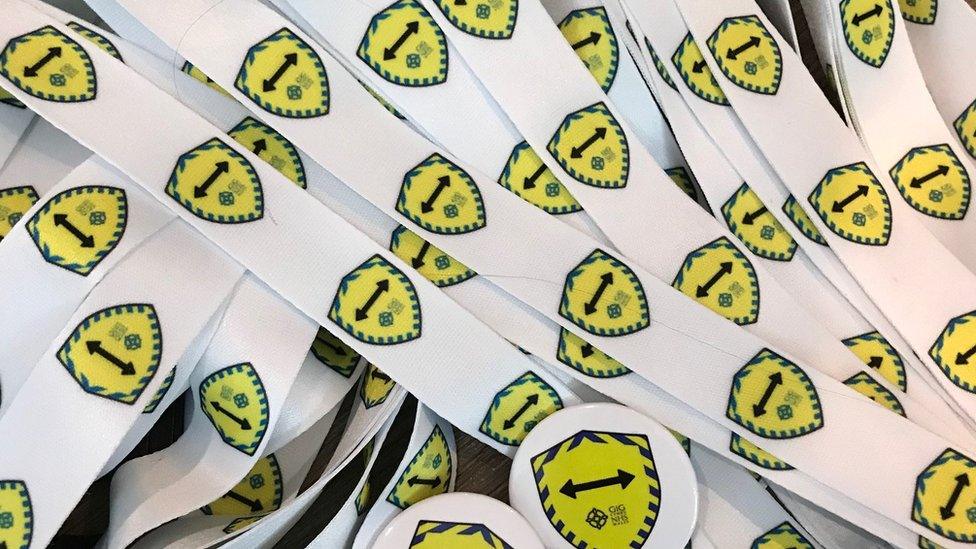
Badges with the image of a yellow shield are being distributed across the NHS in Wales
What about shielding in the other UK nations?
England - The 2.2m people who have been self-isolating in England during the pandemic will no longer need to shield from 1 August. They are already able to meet outdoors in a group with up to five others and form "support bubbles" with other households.
Scotland - The 180,000 people currently shielding in Scotland are to be allowed to stay in holiday accommodation and visit outdoor markets and gardens from Friday, in a change to advice announced on Thursday. First Minister Nicola Sturgeon said it was hoped the need for shielding could be paused entirely at the end of July.
Northern Ireland - The 80,000 people deemed to be at most risk from coronavirus will be able to go outside again when the shielding period ends on 31 July.
- Published22 June 2020
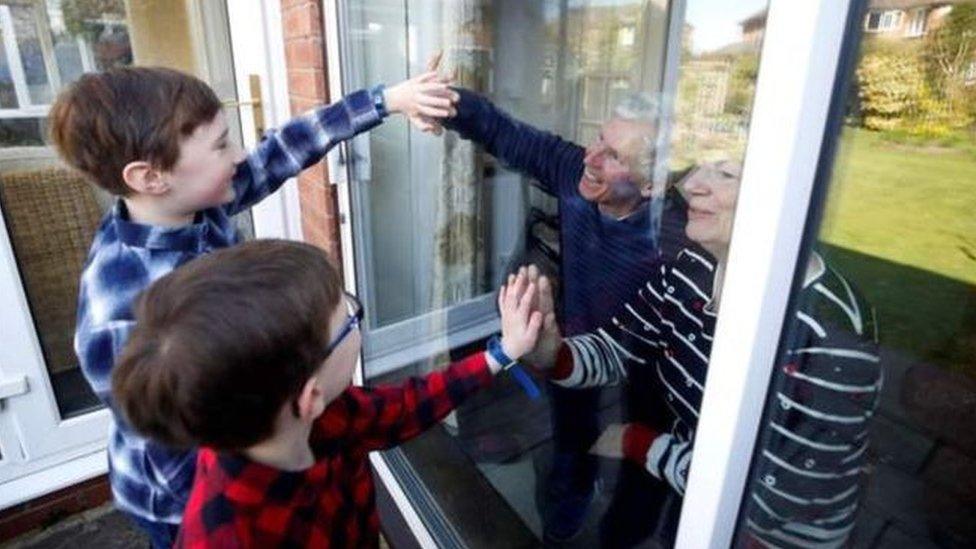
- Published31 May 2020
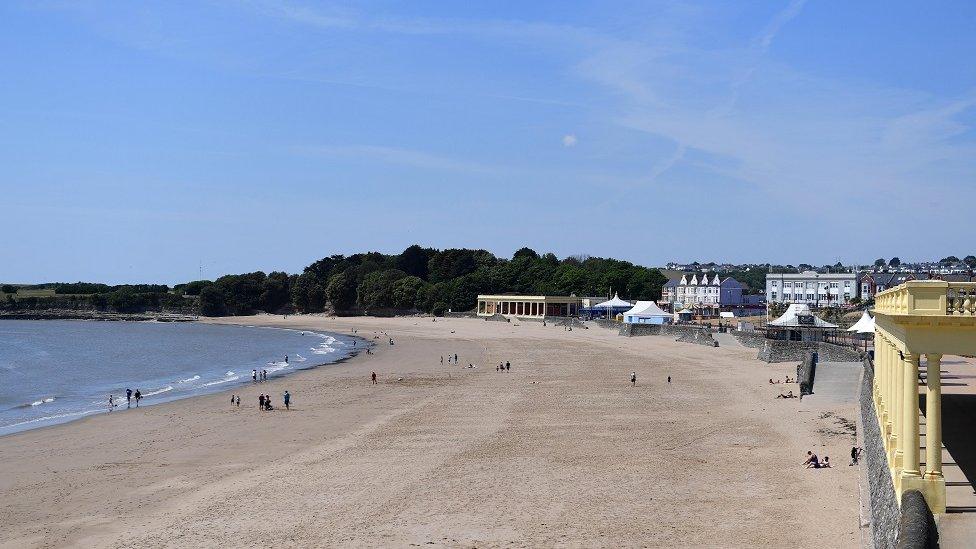
- Published5 May 2020

- Published15 April 2020
